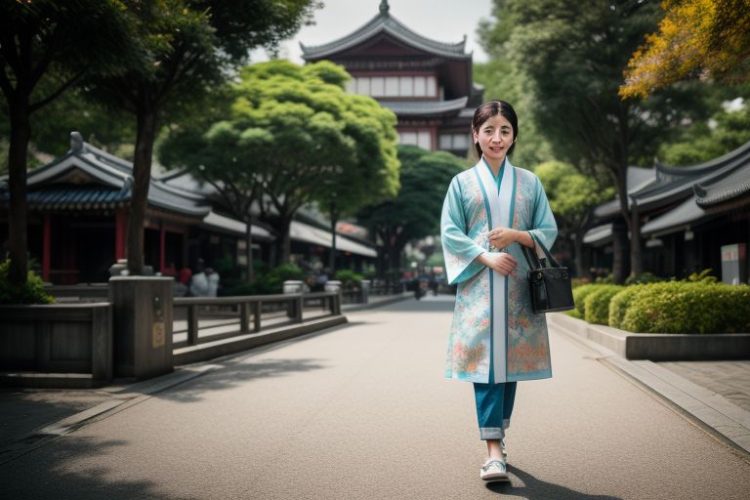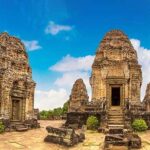Introduction
The Asian lifestyle, with its rich traditions, vibrant cultures, and diverse experiences, offers a unique and enriching way of life. Whether you’re considering relocating to Asia or simply interested in learning more about how daily life unfolds in this part of the world, understanding and appreciating the Asian lifestyle can enhance your experience and help you adapt more smoothly. This guide explores various aspects of living in Asia, from cultural practices and daily routines to the unique experiences that define life in this dynamic region.
Cultural Practices in Asia
Asia is a continent renowned for its deep cultural heritage and diverse traditions. Each country within Asia brings its own unique cultural practices, from traditional festivals and ceremonies to everyday customs. Embracing these cultural practices can provide valuable insights into the local way of life and help you connect with the community.
In countries like Japan and China, for example, you’ll encounter a range of traditional festivals and rituals that play a significant role in daily life. In Japan, festivals such as Hanami, where people gather to appreciate cherry blossoms, and the vibrant Gion Matsuri in Kyoto, offer a glimpse into the country’s rich cultural tapestry. Similarly, in China, celebrations like the Lunar New Year and the Mid-Autumn Festival are deeply ingrained in the culture and provide a sense of community and tradition.
Participating in these cultural events and understanding local customs, such as etiquette and social norms, can enhance your experience and help you build meaningful relationships with locals. Whether it’s learning traditional dance, trying local cuisine, or simply engaging in community activities, embracing these practices will enrich your understanding of the Asian lifestyle.
Daily Life in Asia
Daily life in Asia varies widely depending on the country and region, but there are common threads that define the experience. In bustling metropolitan areas like Tokyo, Bangkok, or Seoul, the pace of life is fast and dynamic. These cities offer a mix of modern conveniences and traditional elements, creating a unique urban environment where ancient customs coexist with cutting-edge technology.
Public transportation in many Asian cities is efficient and well-developed, making it easy to navigate and explore. In Tokyo, for instance, the extensive train and subway system ensures that getting around is both convenient and reliable. Similarly, in cities like Hong Kong and Singapore, public transport is an integral part of daily life, connecting residents to various parts of the city and beyond.
In contrast, rural areas in Asia offer a slower pace of life with a focus on community and tradition. In places like the villages of Bali or the countryside of Thailand, daily routines revolve around local customs and agricultural activities. Life in these areas often emphasizes simplicity and connection to nature, providing a different perspective on the Asian lifestyle.
Adapting to Asian Culture
Adapting to Asian culture involves understanding and respecting local customs, traditions, and social norms. Each country in Asia has its own set of cultural practices, and being open-minded and respectful can help ease your transition into your new environment.
Language is an important aspect of adapting to life in Asia. While English is widely spoken in many major cities and tourist areas, learning basic phrases in the local language can enhance your daily interactions and help you connect with locals. In countries like Thailand, for instance, learning simple Thai greetings and expressions can be appreciated by locals and make your experience more enjoyable.
Cultural etiquette is also crucial. In many Asian cultures, politeness and respect are highly valued. For example, in Japan, bowing is a common greeting and a sign of respect. In China, it’s important to observe proper dining etiquette, such as using chopsticks correctly and avoiding loud behavior. Understanding these cultural nuances will help you navigate social interactions and build positive relationships with those around you.
Unique Experiences in Asia
One of the most exciting aspects of living in Asia is the opportunity to experience its diverse range of activities and attractions. From stunning natural landscapes to vibrant cultural events, Asia offers a wealth of experiences that can enrich your lifestyle.
Outdoor enthusiasts will find plenty to explore, from the majestic Himalayas in Nepal to the pristine beaches of the Philippines. Adventure activities such as trekking, diving, and exploring ancient temples are just a few examples of the experiences you can enjoy. In countries like Vietnam and Indonesia, you can explore lush rainforests, vibrant coral reefs, and historic sites that showcase the region’s natural and cultural heritage.
Food lovers will also appreciate the culinary delights that Asia has to offer. Each country boasts its own unique cuisine, from the spicy street food of Thailand to the delicate flavors of Japanese sushi. Exploring local markets, trying new dishes, and participating in cooking classes can provide a deeper appreciation for the region’s food culture.
Cultural festivals and events are another highlight of living in Asia. Whether it’s attending the Lantern Festival in Taiwan, experiencing the colorful Holi festival in India, or celebrating the Mid-Autumn Festival in Hong Kong, these events offer a glimpse into the rich cultural traditions of the region.
Building Connections and Community
Building connections and finding a sense of community are important aspects of adapting to life in Asia. Engaging with local residents, participating in community activities, and joining expat groups can help you feel more at home and create meaningful relationships.
Many cities in Asia have active expat communities where you can meet others who are going through similar experiences. These groups often organize social events, provide support, and share useful information about living in the area. Connecting with these communities can help you navigate your new environment and make the transition smoother.
Additionally, getting involved in local activities and volunteering can provide a sense of purpose and connection. Contributing to community projects or participating in local events can help you integrate into your new surroundings and build lasting friendships.
Conclusion
Embracing the Asian lifestyle offers a wealth of opportunities for personal growth, cultural enrichment, and new experiences. From understanding cultural practices and adapting to daily routines to exploring unique attractions and building connections, living in Asia can be a rewarding and fulfilling adventure.
By approaching your new life with an open mind and a willingness to learn, you can fully appreciate the richness and diversity of the Asian lifestyle. Whether you’re drawn to the vibrant cities, serene countryside, or rich cultural heritage, Asia offers a unique and enriching experience that can enhance your quality of life and provide a new perspective on the world.

Ray Brocklesby, the site owner, is a Brit who now lives in the Philippines. He is retired and lives with his wife Weng, Daughter Kristelle, nephews, Harvey and Boknoy, and mother-in-law. Ray also has a son and daughter living in the UK, and a son in New Zealand.













